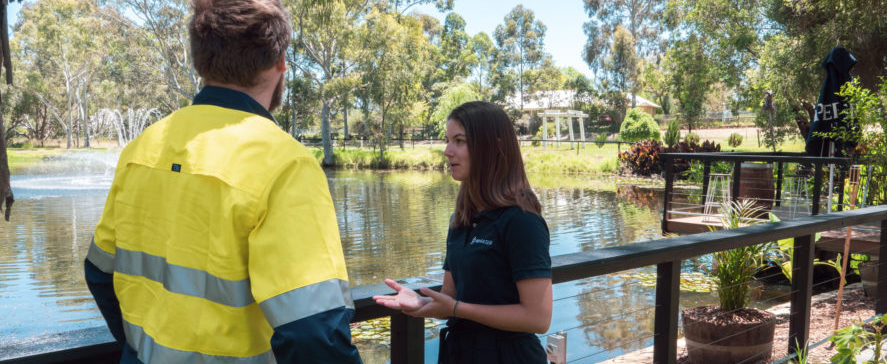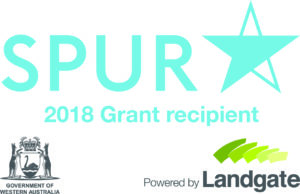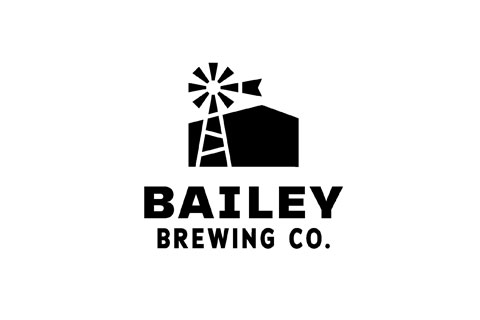Water Manager is proud to provide a recent Trade Rates History.
This is publicly available on our Water Trading webpage, at no cost, with no obligations.
Water licensing and trading is still a largely undeveloped market.
It’s common for people to compare it to property sales. For instance, water licences and land are both assets—so aren’t they transacted the same way?
This is a fair comparison since there are a few similarities between property and water licences. These similarities include dealing with agents, the negotiation process, a commissions business-model, sales, and beyond.
However, at a closer look, property and water sales can be quite different. In this article we’ll explore five of the most relevant differences, giving clarity on the unique challenges of water licensing and trading.
It’s difficult to estimate water licence market trade prices.
This difference is partly because, in comparison to water, property has been transacted for centuries. There’s publicly available information on property sale prices, but this isn’t true for water.
When it comes to water assets, the transaction history is far shorter and there’s no public record of water trades. This makes it very difficult to estimate rates.
The shorter transaction history of water has also made it difficult for prices to become standardised over time. Because of this, individuals must rely on private information to value water.
Finding a service with access to a database of recent water licence trades allows trading parties to accurately estimate water licence values.
Water Manager is proud to provide a recent Trade Rates History.
This is publicly available on our Water Trading webpage, at no cost, with no obligations.
Water licences have conditional ownership in comparison to property.
What that means is – if the conditions of the water licence are breached, it can be reclaimed by the Department of Water and Environmental Regulation (DWER). A licence is owned by its licensee, though there are specific requirements that need to be met to ensured continued ownership.
These conditions include the scope of the use, the volume limit, maintenance of infrastructure, impact on the environment and other groundwater users, and many other factors. These are imposed by the DWER to ensure that water is properly used and recorded.
DWER enforcement policies state that breaches of water licence usage can be detected, that fines can be issues and, in worse-case scenarios, water licences can be revoked.
DWER ultimately regulate water use in WA to promote the sustainability of the environment and the economy. This is important since water is a vital but scarce resource, and specifically applicable to bore licences, groundwater levels are dropping.
The volume and value of water transactions are a lot lower than property.
Property sells in days, licences sell in months or years. The median time to sell a property in Perth in March 2021 was 17 days (source: Reiwa). Water licences generally take a few months, and depending on the area it could take years, to be traded. One example of this is the East Swan groundwater sub-area, where we have actively procured trades at different prices and allocations over 3 years, and only recently completed a trade.
As a very general guideline, the average water licence usually costs about 10% of its corresponding property price. This has different implications for the pricing of water trading when working with third parties.
Third parties who help individuals trade water not only source accurate estimations but work hard with the Department of Water and Environmental Regulation (DWER) to ensure trades meet all legal requirements.
Water trading is a specialised service which requires a highly technical skillset from hydrogeology to marketing to legal and beyond.

Transaction costs are also lower for water trades when compared to the costs and tax implications of property transactions and ongoing ownership and maintenance of real estate.
Water buyers typically pay much lower Stamp Duty when trading water than when purchasing property (as the transaction value is lower).
Water buyers and sellers often ask whether capital gains tax applies to their water investments over time, either for holding a licence in the past or buying one for the future.
The answer is yes, sellers are liable for capital gains on their water trades. The capital gains value can fluctuate drastically because sometimes water licences were acquired at no cost, making the gains equal to the sale value (which is highly taxable), and other times, the gain (difference between value of acquisition and sale) are similar (reducing the capital gains tax).
You can contact us for help understanding the capital gains on your water investments, at: watermanager.com.au/contact-us.
If all this isn’t confusing enough, the idea that water licences are mobile adds another interesting caveat to water trading. Unlike immovable property, water licences can be moved between different properties.
Although usage must be specified in the licence, multiple uses in various locations can be agreed upon by the DWER.

Meet Water Manager – our new platform for trading water licences.
Water Manager was created to help you expertly manage your water licences. Buy and sell water licences with ease on Water Manager, and be confident your trades will be approved.
Try Water Manager today, at app.watermanager.com.au.
Our online platform, Water Manager, was created to help you trade water with ease.
We offer a free database with recent trade rates history for select local areas to help buyers and sellers correctly estimate water prices.
You can use Water Manager to:
Property agents may also benefit from Water Manager. We have seen property sales halted due to water licensing requirements, and generally when a property is sold, the licence needs to be transferred out of the property or to its new owner.
We offer a range of solutions for real estate agents to partner with our teams to get our mutual clients the best results, and we don’t forget where they heard from us. We can set up a rewards scheme for water trading referrals. Contact us to discuss further: watermanager.com.au/contact-us.
We work hard to ensure our clients are satisfied with their water. Here’s what some of our clients are saying:
We’re proud of our strong partnerships with our clients and suppliers. Together we strive to make water usage more efficient and beneficial for licensees and the environment.






2024 Water Manager. All right reserved.
Powered by BD Water.